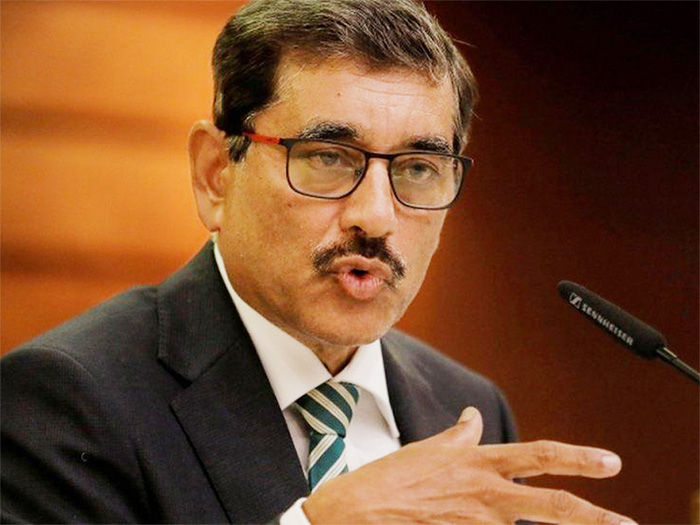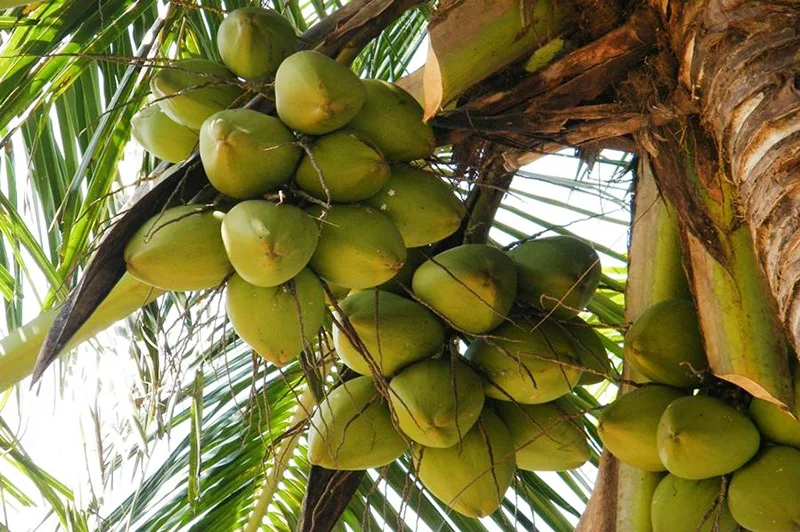Business
ComBank tops banking sector for service excellence in LMD survey

The Commercial Bank of Ceylon has been ranked the best for service excellence among Sri Lanka’s banks in the 2024 edition of the annual Customer Excellence Survey of LMD, the country’s pioneering business magazine.
This is the second consecutive year that Commercial Bank topped the banking sector for service excellence in the LMD survey.
Conducted online, the survey received 4,100 responses this year. Respondents were asked to vote for their preferred establishment for service excellence in 34 categories of service organisations.
The results were published in the December edition of LMD, with up to 20 organisations in each category ranked according to the number of votes they received.
“This is a great way to end the year,” Commercial Bank’s Chief Operating Officer S. Prabagar commented. “Customer service is paramount in banking, and includes a bank’s ability to provide tailor-made solutions that address an individual client’s specific requirements. This is one of our strengths, and continues to be an area of focus, despite the increasing emphasis on digital access to services.”
Customer excellence is embedded as a core element of Commercial Bank’s business strategy. The Bank actively integrates customer feedback to continuously improve services and products, and also uses data analytics to anticipate customer needs to be able to proactively offer hyper-personalised financial solutions, Prabagar said.
Introducing the 2024 survey, LMD said: “In today’s competitive landscape where choices are plenty and customer loyalty is a precious asset, knowing what makes a customer tick is more important than ever,” and stressed that understanding customer expectations has become essential for businesses that are aiming to thrive.
Commercial Bank is the first Sri Lankan bank to be listed among the Top 1000 Banks of the World and has the highest market capitalization in the Banking Sector in the Colombo Stock Exchange (CSE). The Bank is the largest lender to Sri Lanka’s SME sector, is a leader in digital innovation and is Sri Lanka’s first 100% carbon neutral bank. Commercial Bank operates a strategically located network of branches and automated machines island-wide, and has the widest international footprint among Sri Lankan banks, with 20 outlets in Bangladesh, a Microfinance company in Myanmar, and a fully-fledged Tier I Bank with a majority stake in the Maldives. The Bank’s fully- owned subsidiary CBC Finance Ltd. also delivers a wide range of financial services via its own branch network.
Business
If vehicle imports flow out USD 2 billion, forex reserves will fall: CBSL Governor

By Sanath Nanayakkare
If vehicle imports flow out USD 2 billion, Sri Lanka’s hitherto collected foreign reserves will fall, and its consequences might bring negative implications on the overall economy, Central Bank Governor, Dr. Nandalal Weerasinghe said, taking part in the Muhunata Muhuna programme on Sirasa TV recently.
“There has been a 5-year long ban on car imports to save our foreign reserves and have a healthy current account to ensure economic stability without plunging into a crisis again. We understand that there is the need to import cars because old vehicles incur higher running costs. The tourism industry, transportation industry and other sectors need new vehicles for obvious reasons. And there are many other individuals in society who are looking to buy a car. But this needs to be allowed with great caution as we need to control our forex outflows vs car imports and only the most needed imports are exececuted. The Ministry of Finance has been in discussions with us as to what is the healthy level of reserves to allow car imports. We have already given the Finance Ministry the recommendation that it can be allowed on a staggered basis to the tune of USD 1.0 -1.5 billion. Two circulars were issued following that recommendation regarding vehicle imports. However, that was delayed.”
“The Finance Ministry will issue the 3rd circular in Feb. 2025 regarding car imports. The Central Bank informs the Finance Ministry of the status of the foreign reserves and how we best can manage it as imports begin. And the final decision is on the fiscal side to weigh the situation vis a vis; the requirement for vehicles in the market, the import duties the government can collect and maintaining a healthy level of foreign reserves level.
“Imports worth USD one billion won’t have a significant impact on the current exchange rate or the foreign reserves level, but if it goes up to USD 2 billion, it will have an adverse impact on the foreign exchange reserves. So, the important question is how to allow vehicle imports while balancing the reserves, he said.
The Governor said that the Central Bank targets to have USD 7 billion in its reserves by the end of 2025.
Business
Member, National Council for Road Safety

Director, Upali Group of Companies and the Chairman of the Automobile Association of Ceylon (AAC), Dhammika Attygalle, has been appointed a member of the National Council for Road Safety by the Secretary, to the Ministry of Transport, Highways, Ports and Civil Aviation, Senior Prof. K. Kapila C.K. Perera. Mr. Attygalle will be holding this position for three years.
Mr. Attygalle is also the Chief Basnayake Nilame of the Kelaniya Rajamaha Viharaye.
Business
SL’s coconut scarcity set to aggravate in coming months – CCCI

By Hiran H.Senewiratne
Sri Lanka’s coconut shortage will further aggravate in the coming months and we urge the government to expedite the proposal to import 200 million nuts, The Ceylon Chamber of Coconut Industries (CCCI), the umbrella organisation for Sri Lanka’s coconut industry, said.
“Sri Lanka’s current national coconut output is around 1.5 billion nuts. The Coconut Research Institute has revealed that this year there would be a 10 percent drop in production and that would adversely affect local consumption. An unprecedented coconut shortage is threatening domestic consumers with sky-rocketing prices, about Rs. 200 per nut, and also exports, CCCI president, Jayantha Samarakoon revealed at a media conference held at the Ceylon National Chamber of Industries auditorium last Tuesday.
Samarakoon expressed fears that if exporters fail to fulfil the current export orders due to a lack of raw materials, it could severely impact Sri Lanka’s reputation as a reliable supplier in the world coconut market. The latter is expected to grow to US$30 billion by 2030.
The CCCI initially expressed fears of an unprecedented coconut shortage in September last year, while warning that prices could rise to Rs. 270 per nut if no action was taken to reverse the current trend.
“The time for action is now. Through collaborative and immediate measures, Sri Lanka can not only recover but position itself as a global leader in the coconut industry. This approach is critical for restoring balance, enhancing export competitiveness and ensuring affordable access for all Sri Lankans, Samarakoon added.
“Last year, coconut and coconut-based exports were estimated to have generated US$ 782million in foreign exchange revenue, the highest ever. By 2027, the CCCI aims to help the country achieve US$1.5 billion in coconut-based export revenue while boosting the annual production from 3 billion to 4.5 billion coconuts, he said.
“The Coconut Research Institute (CRI) has forecast a production shortfall exceeding 200 million nuts in the first quarter of this year. In 2024, coconut production fell short by 260 million nuts from CRI’s forecast, with a sharp 60 percent year-on-year (YoY) drop in coconut harvest in December 2024. The industry was targeting to bring in US$1 billion in export revenue this year, Samarakoon added.
Samarakoon added: “While the government has responded favourably to the industry proposal for imports, it is yet to reach the Cabinet of Ministers for approval. The actions of certain government bodies, such as the Department of Agriculture, are causing further delays in the import process by raising concerns about the possibility of diseases entering the country.
“It typically takes a minimum one-month period for imports to reach export manufacturers under the regulations. Further delays could adversely impact farm gate prices in the upcoming June coconut harvest season, as possible delays in imported raw materials could lead to an excess supply scenario during the harvest season, ultimately resulting in lower prices for domestic coconut farmers who are largely smallholders.
“The shortages have mainly been due to a short-lived blanket ban on chemical fertilisers and agrochemicals in 2020 and subsequent unaffordable fertilizer prices, which resulted in insignificant application of fertilizers.
“The Chamber has proposed allocating Rs. 1.5 billion from the CESS Fund for subsidies covering moisture conservation, fertiliser, pest control and related agricultural improvements. It is also seeking soft loans for infrastructure such as irrigation and solar power to enhance productivity. These measures, once implemented, will take almost a year to increase coconut production.
“The Chamber is of the view that importing fresh coconuts is the most cost-effective solution, which would particularly benefit the oil and activated carbon industries. Otherwise, it is seeking equivalent raw materials, including copra chips, dried pairings, coconut milk and frozen kernels, to stabilise the supply chain.”
-

 Features4 days ago
Features4 days agoIS THIS THE FINISH OF THE SRI LANKAN ELEPHANT?
-

 News4 days ago
News4 days agoElectricity tariff reduction: 20% inadequate says consumers
-

 Editorial5 days ago
Editorial5 days agoGovt. taken for a ride again ?
-

 Editorial6 days ago
Editorial6 days agoLies and mandates
-

 Business2 days ago
Business2 days agoCustomer service to new heights with Digitalized Contact Centre for Union Bank
-

 Features4 days ago
Features4 days agoPaddy-Rice Data Gap: How much grown? How much sold?
-

 Editorial4 days ago
Editorial4 days agoThe rice crisis
-

 Features6 days ago
Features6 days agoClean Sri Lanka environmentally, socially and psychologically











